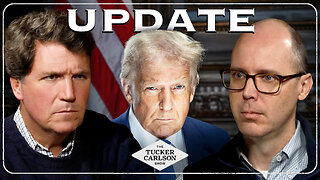Premium Only Content

What is TRADE SECRET?
✪✪✪✪✪
http://www.theaudiopedia.com
✪✪✪✪✪
What does TRADE SECRET mean? TRADE SECRET meaning - TRADE SECRET definition - TRADE SECRET explanation. What is the meaning of TRADE SECRET? What is the definition of TRADE SECRET? What does TRADE SECRET stand for? What is TRADE SECRET meaning? What is TRADE SECRET definition?
A trade secret is a formula, practice, process, design, instrument, pattern, commercial method, or compilation of information not generally known or reasonably ascertainable by others by which a business can obtain an economic advantage over competitors or customers. In some jurisdictions, such secrets are referred to as "confidential information" but are generally not referred to as "classified information" in the United States, since that refers to government secrets protected by a different set of laws and practices.
The precise language by which a trade secret is defined varies by jurisdiction (as do the particular types of information that are subject to trade secret protection). However, there are three factors that, although subject to differing interpretations, are common to all such definitions: a trade secret is information that:
Is not generally known to the public;
Confers some sort of economic benefit on its holder (where this benefit must derive specifically from its not being publicly known, not just from the value of the information itself);
Is the subject of reasonable efforts to maintain its secrecy.
These three aspects are also incorporated in the TRIPS Agreement in Article 39.
By comparison, under U.S. law, "A trade secret, as defined under 18 U.S.C. § 1839(3) (A), (B) (1996), has three parts: (1) information; (2) reasonable measures taken to protect the information; and (3) which derives independent economic value from not being publicly known".
Trade secrets are an important, but invisible component of a company's intellectual property (IP). Their contribution to a company's value, measured as its market capitalization, can be major. Being invisible, that contribution is hard to measure. Patents are a visible contribution, but delayed, and unsuitable for internal innovations. Having an internal scoreboard provides insight into the cost of risks of employees leaving to serve or start competing ventures.
In contrast to registered intellectual property, trade secrets are, by definition, not disclosed to the world at large. Instead, owners of trade secrets seek to protect trade secret information from competitors by instituting special procedures for handling it, as well as technological and legal security measures. Legal protections include non-disclosure agreements (NDAs), and work-for-hire and non-compete clauses. In other words, in exchange for an opportunity to be employed by the holder of secrets, an employee may sign agreements to not reveal their prospective employer's proprietary information, to surrender or assign to their employer ownership rights to intellectual work and work-products produced during the course (or as a condition) of employment, and to not work for a competitor for a given period of time (sometimes within a given geographic region). Violation of the agreement generally carries the possibility of heavy financial penalties which operate as a disincentive to reveal trade secrets. However, proving a breach of an NDA by a former stakeholder who is legally working for a competitor or prevailing in a lawsuit for breaching a non-compete clause can be very difficult. A holder of a trade secret may also require similar agreements from other parties he or she deals with, such as vendors, licensees, and board members.
As a company can protect its confidential information through NDA, work-for-hire, and non-compete contracts with its stakeholders (within the constraints of employment law, including only restraint that is reasonable in geographic- and time-scope), these protective contractual measures effectively create a perpetual monopoly on secret information that does not expire as would a patent or copyright. The lack of formal protection associated with registered intellectual property rights, however, means that a third party not bound by a signed agreement is not prevented from independently duplicating and using the secret information once it is discovered, such as through reverse engineering.
-
 2:24
2:24
The Audiopedia
7 months agoWhat is AUSTERITY?
77 -
 4:45:11
4:45:11
MoFio23!
9 hours agoNintendo Switch It UP Saturdays with The Fellas: LIVE - Episode #3
44.5K6 -
 6:23:10
6:23:10
SquallRush
7 hours agoMarvel Rivals Collab
34.4K -
 8:36:24
8:36:24
stephengaming94
6 days agofar cry 5 live stream part 3
24.4K2 -
 2:03:28
2:03:28
Barry Cunningham
20 hours agoTRUMP DAILY BRIEFING: 2 DAYS TO GO - ARE YOU READY FOR HISTORY TO BE MADE?
56.4K90 -
 13:41
13:41
Tundra Tactical
11 hours ago $10.83 earnedGOA VP Erich Pratt Tells ATF "COMPLY NOW"
78.7K6 -
 21:06
21:06
BlackDiamondGunsandGear
13 hours agoPSA Dagger Micro Self-Destructs During Shooting! What Happened…
51.7K16 -
 6:27:09
6:27:09
Right Side Broadcasting Network
5 days agoLIVE REPLAY: RSBN Pre-Inauguration Coverage: Day Three in Washington D.C. - 1/18/25
287K59 -
 25:09
25:09
MYLUNCHBREAK CHANNEL PAGE
18 hours agoOff Limits to the Public - Pt 2
74.2K66 -
 1:36:11
1:36:11
Tucker Carlson
1 day agoSean Davis: Trump Shooting Update, & the Real Reason Congress Refuses to Investigate
360K438